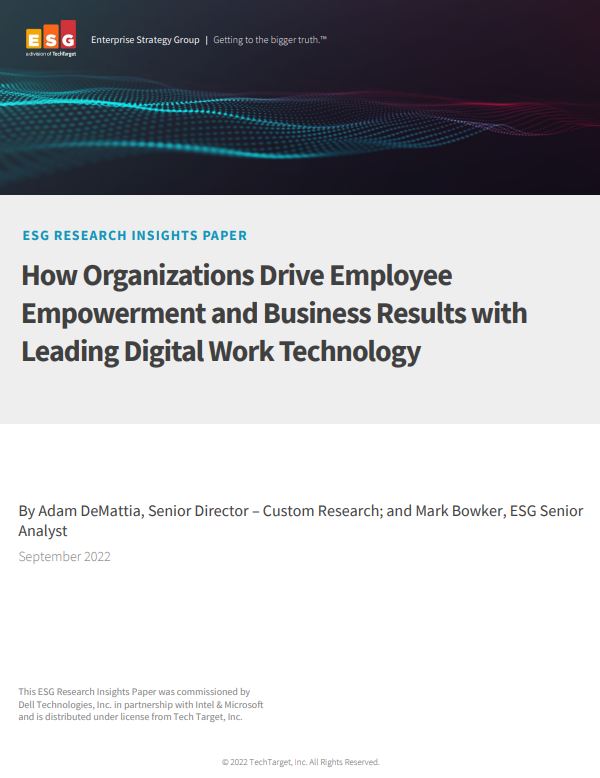Report: One in four UK businesses hiring overseas to tackle talent shortage
UK overseas hires still lag behind global numbers but increased diversity, interest in markets, and tech talent all lead businesses to look outside London


A quarter of UK businesses have turned to hiring global tech talent in a bid to overcome domestic skills shortages, according to new research.
Overall, 27% of UK businesses have already hired candidates from overseas, or are in the process of doing so, while 63% still focus primarily on UK-wide recruitment drives.
This compares to a larger figure of 36% amongst global decision-makers, indicating that despite the UK’s continued shortage of skilled workers, businesses continue to look inward for new hires.
Amongst those taking part in global talent acquisition, skills shortages motivated 25% to do so, but were not the primary reason behind the practice. This was identified as a desire to diversify teams (67%), while an interest in testing new markets was a motivator for 60% of respondents.
Results also indicated that while UK businesses are looking overseas, the majority (70%) of firms favour existing tech hubs like New York, Paris, and Berlin over emerging tech talent hubs like Ahmedabad, Budapest, or Mexico City.
This illustrates a disparity between hiring decisions and the potential talent pools in these emerging markets. In Gartner’s ‘Emerging IT Talent Hubs in 2022’ (PDF) report, existing and emerging tech hubs were each assigned a ‘supply-demand ratio’, calculated as talent supply divided by talent demand.
The higher the number calculated, the more untapped talent the hub was determined to hold. London and New York York were awarded 2 overall, versus a score of 8 for the top emerging tech hub Mexico City.
Get the ITPro daily newsletter
Sign up today and you will receive a free copy of our Future Focus 2025 report - the leading guidance on AI, cybersecurity and other IT challenges as per 700+ senior executives
However, just 7% of respondents in Remote’s study indicated that they considered Mexico City to have ‘considerable talent’, compared to 20% who indicated that they still believe there to be such talent in London, and are continuing to seek candidates within the city.
HR solutions company Remote revealed the results in its 2022 Tech Talent Report, which showed the skills shortage is having an effect on the hiring decisions of decision-makers within the sector.
RELATED RESOURCE

How organisations drive employee empowerment and business results with leading digital technology
What you can achieve with a leading approach to digital work
Beyond the benefits of flexible working, hiring managers are also factoring in the ethical implications of remote work from emerging tech hubs. 68% of respondents who indicated that they were considering hiring from a global pool said that it was important to allow workers to progress in their field without having to move country.
“When I think about the colossal opportunity to hire great talent around the world, the challenges businesses are facing and blockers to hiring the best talent seem small,” said Job van der Voort, CEO and co-founder of Remote.
“The research shows that for businesses to meet their tech talent needs, they need to go a step further and look beyond their own market. Tech talent hasn’t disappeared, it’s just distributed around the world, and companies need to overcome the challenges to access it”.
Firms looking to increase their international talent pool through remote hires face the challenge of managing a distributed team. 47% of respondents indicated that language barriers were a concern in hiring decisions, and 46% pointed to the difficulty of working across different time zones.
In response, Remote recommended adopting asynchronous work patterns which allow workers to adjust their shifts to best suit productivity and convenience, and also give those who don’t speak English as their first language time to translate information in work and messages.
In this and a number of other ways, companies could benefit from removing the need for instantaneous responses.
The research was conducted via an online survey in September 2022, with 1,485 decision-makers currently hiring for remote roles in the tech sector taking part. The UK sample consisted of 251 such business leaders across the same period.
Bringing global tech talent to the UK
In 2021's Autumn Budget, the government announced it would overhaul the UK visa system to attract more overseas talent, making several notable changes to the Global Talent Visa (GTV). This was created with the aim of attracting STEM experts to boost the UK’s innovation and diversity of talent in emerging fields such as artificial intelligence (AI).
Changes included the addition of a number of eligibility criteria for the GTV, with particular regard for candidates with research grants, approved international prizes, or an individual fellowship. Applications from such candidates are placed into a faster lane than those without any of these criteria.
The government also offers the Innovator visa, which aims to help those with a specific plan for setting up an innovative business in the UK.
However, unlike the Global Talent Visa, applicants to the Innovator visa must demonstrate a proficiency in English as assessed in an approved test, or through the candidate’s possession of a recognised qualification in English.
There are a number of countries and territories excluded from this requirement, but it can still be a stumbling block for potential applicants.

Rory Bathgate is Features and Multimedia Editor at ITPro, overseeing all in-depth content and case studies. He can also be found co-hosting the ITPro Podcast with Jane McCallion, swapping a keyboard for a microphone to discuss the latest learnings with thought leaders from across the tech sector.
In his free time, Rory enjoys photography, video editing, and good science fiction. After graduating from the University of Kent with a BA in English and American Literature, Rory undertook an MA in Eighteenth-Century Studies at King’s College London. He joined ITPro in 2022 as a graduate, following four years in student journalism. You can contact Rory at rory.bathgate@futurenet.com or on LinkedIn.
-
 The UK government wants quantum technology out of the lab and in the hands of enterprises
The UK government wants quantum technology out of the lab and in the hands of enterprisesNews The UK government has unveiled plans to invest £121 million in quantum computing projects in an effort to drive real-world applications and adoption rates.
By Emma Woollacott Published
-
 Netgear WBE710 review
Netgear WBE710 reviewReviews The compact WBE710 delivers great cloud management features and a good turn of Wi-Fi 7 speed – but it does have a premium price tag
By Dave Mitchell Published
-
 Tech talent shortages mean firms are scrapping traditional recruitment strategies
Tech talent shortages mean firms are scrapping traditional recruitment strategiesNews With more than half of enterprise leaders worried about future skills shortages, many organizations are turning to a range of new techniques to expand potential talent pools.
By Emma Woollacott Published
-
 Employees are dead set on flexible working arrangements – three quarters would turn down a role that didn't offer hybrid options as work-life balance becomes more important than pay
Employees are dead set on flexible working arrangements – three quarters would turn down a role that didn't offer hybrid options as work-life balance becomes more important than payNews New research shows workers are increasingly demanding flexible working arrangements from employers.
By Emma Woollacott Published
-
 How to empower employees to accelerate emissions reduction
How to empower employees to accelerate emissions reductionin depth With ICT accounting for as much as 3% of global carbon emissions, the same as aviation, the industry needs to increase emissions reduction
By Fleur Doidge Published
-
 Half of jobseekers turned down offers last year amid growing demands on employers
Half of jobseekers turned down offers last year amid growing demands on employersNews An increasingly competitive talent landscape means employers are being forced to offer a wider range of incentives
By Ross Kelly Published
-
 Worldwide IT spending to grow 4.3% in 2023, with no significant AI impact
Worldwide IT spending to grow 4.3% in 2023, with no significant AI impactNews Spending patterns have changed as companies take an inward focus
By Rory Bathgate Published
-
 Report: Female tech workers disproportionately affected by industry layoffs
Report: Female tech workers disproportionately affected by industry layoffsNews Layoffs continue to strike companies throughout the tech industry, with data showing females in both the UK and US are bearing the brunt of them more so than males
By Ross Kelly Published
-
 How can small businesses cope with inflation?
How can small businesses cope with inflation?Tutorial With high inflation increasing the cost of doing business, how can small businesses weather the storm?
By Sandra Vogel Published
-
 How to deal with inflation while undergoing digital transformation
How to deal with inflation while undergoing digital transformationIn-depth How can organizations stave off inflation while attempting to grow by digitally transforming their businesses?
By Sandra Vogel Published